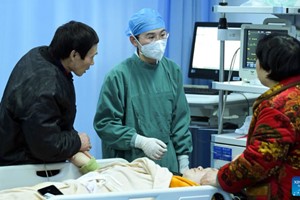South Korea grapples with a pressing healthcare crisis as junior doctors continue their strike, leaving essential medical services in limbo. The core issue revolves around the government's proposed solution to address the critical shortage of doctors, particularly in vital specialties and rural regions.
Junior doctors voice concerns regarding the effectiveness of the government's plan, which aims to increase medical school enrollment by 2,000 students. They argue that this strategy fails to address the root cause of the problem, as new doctors are likely to gravitate towards specialties offering better work-life balance and higher compensation.
In response to the proposed solution, doctors demand better pay and improved working conditions for those in essential specialties. Sooho Joo, spokesperson for the Korea Medical Association Emergency Response Committee, stresses the importance of appropriate compensation for doctors working in these areas.
Contrarily, the government defends its stance, asserting that a larger pool of doctors is necessary to meet the demands of an aging population and align with international standards, such as those set by the OECD.
South Korea's healthcare system, characterized by its market-oriented approach with predominantly private hospitals, presents unique challenges compared to some European models with public healthcare systems and salaried doctors.
Alternative solutions proposed by organizations like the Association of Physicians for Humanism (APH) advocate for the establishment of more public hospitals in underserved regions and the creation of a dedicated university to train public healthcare professionals.
As the strike persists, disruptions in medical services escalate, leading to delayed surgeries and hospital admissions, prompting serious concerns about patient welfare.
In response to the strike, the government has threatened to suspend licenses and impose fines on striking doctors while elevating the health crisis level to "severe." However, the mass resignation of over 80% of junior doctors underscores the depth of their discontent.
Amidst the standoff between junior doctors and the government, patients find themselves as the forgotten stakeholders, bearing the brunt of the strike's consequences. Yi Seoyeong of the Association of Physicians for Humanism emphasizes the critical need for patient interests to be considered in the ongoing discussions.
The deadlock persists, with both sides entrenched in their positions, leaving the future of South Korea's healthcare system uncertain and patients caught in the crossfire.
euronews.com - Roselyn Min












